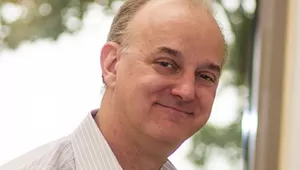Symposium (Hosts)

Morris Birnbaum, MD, PhD
CO-ORGAINIZER
Senior Vice President, Internal Medicine Research Unit, Pfizer
Morris J. Birnbaum is currently Senior Vice President and until recently Chief Scientific Officer for the Internal Medicine Research Unit at Pfizer located in Cambridge, MA. In this role, Dr. Birnbaum led the discovery of novel transformative therapies to reduce the prevalence of cardiometabolic dysfunction, thereby eliminating or diminishing the impact of common diseases on life expectancy and quality. He was responsible for guiding the portfolio and technology strategies to bring programs from discovery through to proof of concept in the clinic. He now serves as an advisor to IMRU.
Dr. Birnbaum joined Pfizer in 2014 after an almost 30-year career as a Physician Scientist, leading an academic laboratory focused on basic research in fundamental mechanisms in metabolic regulation. He occupied roles as Associate Professor of Cell Biology at Harvard Medical School, Professor of Medicine and Cell Biology at the Perelman School of Medicine of the University of Pennsylvania, and Investigator of the Howard Hughes Medical Institute. At the University of Pennsylvania, Dr. Birnbaum also served as Associate Dean for Biomedical Cores and Associate Director of the Institute for Diabetes, Obesity and Metabolism. He completed his undergraduate, graduate, and medical training at Brown University in Providence, Rhode Island before clinical training in Internal Medicine at Barnes Hospital of Washington University School in St. Louis, MO, and postdoctoral studies at the University of California, San Francisco and Sloan-Kettering Cancer Institute.
In his academic career, Dr. Birnbaum published over 200 refereed papers in the world’s leading scientific journals, including Cell, Science and Nature. His research focused on the study of insulin action, metabolism and how organisms respond to both a deficit and a surfeit of food. Among his scientific contributions, Dr. Birnbaum is credited with the cloning of the insulin-responsive glucose transporter and the elucidation of insulin signaling pathways critical to both normal physiology and the development of metabolic disease. Throughout his career, Dr. Birnbaum has been active in national and international scholarly activities, including serving as a member of the Research Policy Committee of the American Diabetes Association, on the Editorial Boards of Journal of Biological Chemistry, Diabetes and Endocrine Reviews, and Deputy Editor for the Journal of Clinical Investigation; he is currently on the Editorial Boards of Cell Metabolism and Science Signaling. Dr. Birnbaum was elected to membership in the American Society for Clinical Investigation and Association of American Physicians and is a fellow of the AAAS.
Symposium (Hosts)

Morris Birnbaum, MD, PhD
CO-ORGAINIZER
Senior Vice President, Internal Medicine Research Unit, Pfizer
Morris J. Birnbaum is currently Senior Vice President and until recently Chief Scientific Officer for the Internal Medicine Research Unit at Pfizer located in Cambridge, MA. In this role, Dr. Birnbaum led the discovery of novel transformative therapies to reduce the prevalence of cardiometabolic dysfunction, thereby eliminating or diminishing the impact of common diseases on life expectancy and quality. He was responsible for guiding the portfolio and technology strategies to bring programs from discovery through to proof of concept in the clinic. He now serves as an advisor to IMRU.
Dr. Birnbaum joined Pfizer in 2014 after an almost 30-year career as a Physician Scientist, leading an academic laboratory focused on basic research in fundamental mechanisms in metabolic regulation. He occupied roles as Associate Professor of Cell Biology at Harvard Medical School, Professor of Medicine and Cell Biology at the Perelman School of Medicine of the University of Pennsylvania, and Investigator of the Howard Hughes Medical Institute. At the University of Pennsylvania, Dr. Birnbaum also served as Associate Dean for Biomedical Cores and Associate Director of the Institute for Diabetes, Obesity and Metabolism. He completed his undergraduate, graduate, and medical training at Brown University in Providence, Rhode Island before clinical training in Internal Medicine at Barnes Hospital of Washington University School in St. Louis, MO, and postdoctoral studies at the University of California, San Francisco and Sloan-Kettering Cancer Institute.
In his academic career, Dr. Birnbaum published over 200 refereed papers in the world’s leading scientific journals, including Cell, Science and Nature. His research focused on the study of insulin action, metabolism and how organisms respond to both a deficit and a surfeit of food. Among his scientific contributions, Dr. Birnbaum is credited with the cloning of the insulin-responsive glucose transporter and the elucidation of insulin signaling pathways critical to both normal physiology and the development of metabolic disease. Throughout his career, Dr. Birnbaum has been active in national and international scholarly activities, including serving as a member of the Research Policy Committee of the American Diabetes Association, on the Editorial Boards of Journal of Biological Chemistry, Diabetes and Endocrine Reviews, and Deputy Editor for the Journal of Clinical Investigation; he is currently on the Editorial Boards of Cell Metabolism and Science Signaling. Dr. Birnbaum was elected to membership in the American Society for Clinical Investigation and Association of American Physicians and is a fellow of the AAAS.

